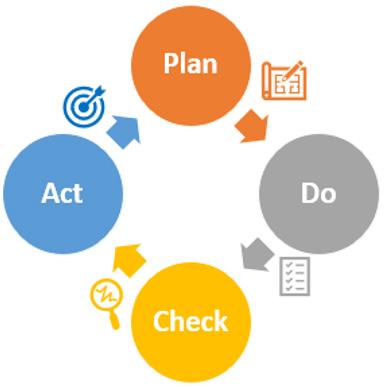
3 minute read
Global Reporting Initiative
Reporting and Disclosure
GLOBAL REPORTING INITIATIVE
GRI is a not-for-profit international organization that promotes the use of sustainability reporting as a way for organizations to disclose the economic, environmental, and social impacts of their activities . The GRI guidelines facilitate greater transparency through their Sustainability Reporting Framework, which includes the 2016 Sustainability Reporting Guidelines . GRI’s 2016 indicators were developed through a global multistakeholder process and offer reporting principles, standard disclosures, and an implementation manual for preparation of sustainability reports . This report has been aligned with the GRI Standards .
This report contains material that references GRI Standard 102: General Disclosures 2016 . The index displays the referenced GRI Standards disclosure numbers and titles, the location in this report of material that references each GRI disclosure, and the title of each section in this report that contains GRI-referenced material .
Number Description Reference
Organizational Profile
102-1 Name of organization 102-2 Activities, brands, products and services 102-5 Ownership and legal form 102-6 Markets served
102-7 Scale of organization 102-8 Information on employees and other workers 102-12 External initiatives
102-13 Membership of Associations
Strategy
102-14 Statement from senior decision maker Cover; Letter from the CEO
Company Overview
Partnerships & Memberships Partnerships & Memberships
Letter from the CEO
102-15 Key impacts, risks, and opportunities
Ethics and Integrity
102-16 Values, principles, standards, and norms of behavior
Governance
Responsible Development and Investment Strategy; Climate Change Mitigation Through Decarbonization; Property Development & Environmental Preservation; Sustainable Design & Construction Guidelines
Company Overview; An Equitable Workplace
102-18 Governance structure Our Management Approach 102-20 Executive-level responsibility for economic, environmental, and social topics Our Management Approach 102-21 Consulting stakeholders on economic, environmental, and social topics Our Management Approach 102-25 Conflicts of interest Governance Policies
Number Description
Reference 102-26 Role of highest governance body in setting purpose, values, and strategy Mission and Vision, Targets and Goals, Strategic Plan 102-28 Evaluating the highest governance body’s performance Governance, Employee Engagement 102-29 Identifying and managing economic, environmental, and social impacts Responsible Development and Investment Strategy
102-31 Review of economic, environmental, and social topics Partnerships & Memberships
Stakeholder Engagement
102-40 List of stakeholder groups 102-41 Collective bargaining agreements 102-43 Approach to stakeholder engagement Environmental Management Systems Employee Programs Stakeholder Engagement, Projects, Implementation
102-44 Key topics and concerns raised
Reporting Practice
102-46 Defining report content and topic boundaries 102-50 Reporting period 102-53 Contact point for questions regarding the report 102-54 Claims of reporting in accordance with the GRI Standards 102-55 GRI content index
Management Approach
103-2 The management approach and its components 103-3 Evaluation of the management approach
Environment (Energy, Water, Emissions)
302-1 Energy consumption within the organization 302-4 Reduction of energy consumption 305-1 Direct (Scope 1) GHG emissions 305-2 Energy Indirect (Scope 2) GHG emissions 305-5 Reduction of GHG emissions
306-3 Waste generated 306-4 Waste diverted from disposal 306-5 Waste directed to disposal
Social
Partnerships & Memberships
Global Reporting Initiative Report Profile Report Profile Global Reporting Initiative Global Reporting Initiative
Our Management Approach Responsible Development and Investment Strategy
Energy Usage per Type Energy Usage Total GHG Emissions per Type GHG Emissions per Type GHG Emissions per Type Waste + Recycling Management Waste + Recycling Management Waste + Recycling Management
401-2 Benefits provided to full-time employees that are not provided to temporary or part-time employees An Equitable Workplace
404-2 Programs for upgrading employee skills and transition assistance programs An Equitable Workplace 405-1 Diversity of governance bodies and employees An Equitable Workplace 413-1 Operations with local community engagement, impact assessments, and An Equitable Workplacedevelopment programs
GRI G4 Sector Supplement: Construction and Real Estate
G4 CRE1 Building energy intensity Energy Usage per Type
G4 CRE8 Type and number of sustainability certification, rating, and labeling schemes for new construction, management, occupation, and redevelopment Letter from CEO









